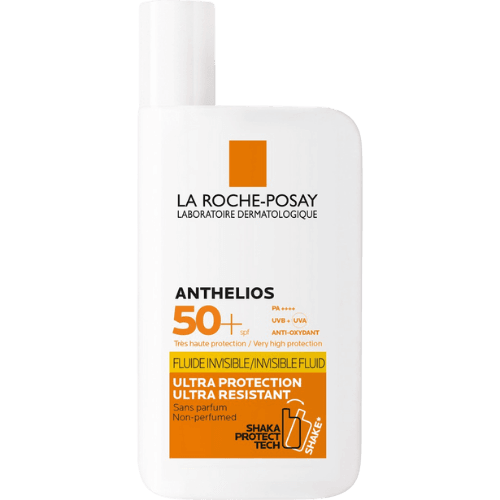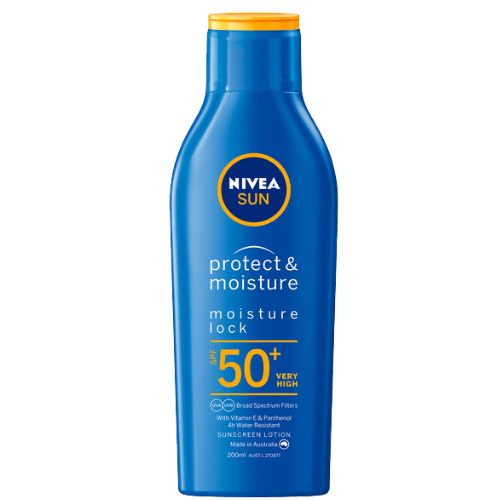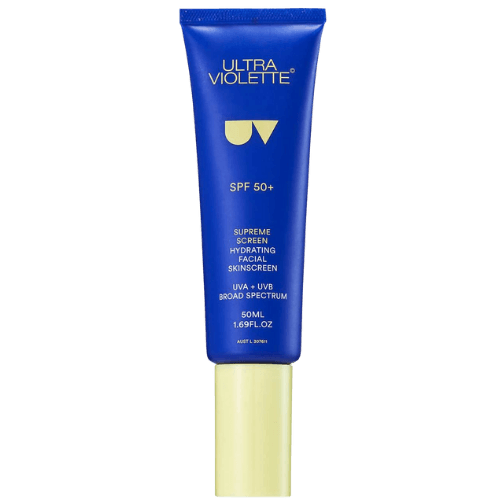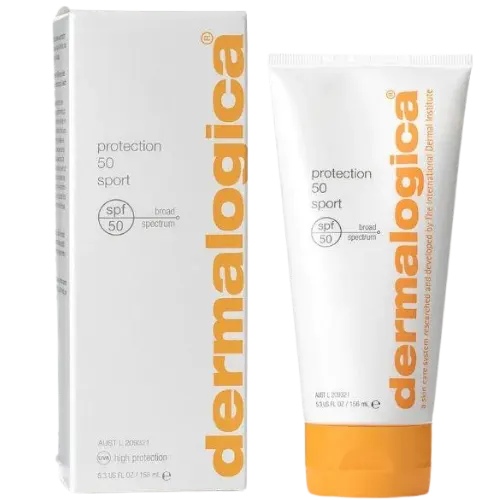Top Pick for
Overall sunscreen

Top Pick for
Overall sunscreen

Top Pick for
Budget sunscreen

Top Pick for
Face sunscreen

Top Pick for
Chemical Sunscreen

For this list, we picked products based on actual customer reviews and ratings on various websites, including Adore Beauty, Amazon and Chemist Warehouse. For every category, we carefully chose parameters based on our research and determined products with the highest review score within those parameters.
Read more detail on our methodology below.

We picked the La Roche Posay Anthelios XL Wet Skin SPF50+ as the best overall sunscreen available online. It has an average rating of 4.43 out of 5 stars on Adore Beauty, Amazon and Chemist Warehouse.
With broad-spectrum UVA/UVB, this La Roche Posay sunscreen offers high sun protection for the whole family. It features thermal spring water for hydration. It also has moisturising ingredients to soften and smoothen the skin. According to the company, it can be applied to dry or wet skin. It offers 4 hours of water resistance as well.
Customers gave positive feedback on the sunscreen's efficacy, ease of use and versatility. It is ideal for both children and adults, and people with sensitive skin added that it is quite gentle and non-irritating. Reviewers also mentioned that it leaves the skin well moisturised. However, the texture isn't lightweight and leaves a shiny finish, which may not suit those with oily skin.

For the best budget option, we recommend Nivea's Sun SPF 50+ Protect & Moisture Moisturising Lotion. It has a rating of 4.5 out of 5 stars on Amazon.
Nivea's Sun SPF 50+ Protect & Moisture Moisturising Lotion is formulated in Australia for Aussie conditions. It has vitamin E and panthenol to keep skin moisturised. It also offers 4 hours of water resistance. Additionally, the sunscreen doesn't contain oxybenzone and octinoxate, 2 UV filters that can harm coral reefs.
The general sentiment is that this is a fantastic budget-friendly option for everyday sun protection. For just $12.39, you get a 400ml bottle with SPF 50+. Customers loved its lightweight feel and subtle scent. Others also mentioned that it rubs in nicely and doesn't leave an oily film or white cast. However, this sunscreen may be too weak for prolonged exposure. One critic said it easily washes off, requiring more frequent application than other options in the market.

With a rating of 4.5 out of 5 stars on Amazon, we picked Sun Bum's Mineral SPF 30 Tinted Sunscreen as the best mineral/physical option.
A zinc-based mineral option, this tinted sunscreen offers a lightweight and silky texture and a matte finish. The brand says it is also hypoallergenic, gluten-free and reef-safe. It offers broad-spectrum SPF 30 and a subtle tint to even out the skin tone.
Customers praised the product's ease of use, creamy texture and matte finish. It is formulated with 5.4% titanium oxide and 2.4% zinc oxide—two naturally occurring ingredients that sit on top of the skin, creating a barrier to reflect the sun's rays. Reviews added that it sinks in quite quickly without leaving a greasy residue. But with most physical or mineral sunscreen, you need to apply the product 15 minutes before sun exposure.

With an average rating of 4.75 out of 5 stars on Adore Beauty and Amazon, we selected the Dermalogica Protection 50 Sport SPF50 as the best chemical sunscreen.
Dermalogica's Protection 50 Sport SPF50 is an alcohol-free sunscreen formulated with antioxidants to fight visible sun damage. The company claims that these ingredients will also strengthen the skin's natural protection against free radical damage. Apart from being paraben-free, this sunscreen has a clear formula that doesn't leave a white cast. It is PETA-accredited and cruelty-free as well.
This sunscreen has a light texture that penetrates the skin nicely. It has a clear formula that is suitable for most skin tones. Customers said that it leaves their skin dewy but non-greasy. It also works well under makeup. The sunscreen has a floral scent, but a few customers found it overpowering.

When it comes to the best natural/zinc sunscreen, we recommend the EltaMD UV Sport Broad-Spectrum SPF 50. It has a rating of 4.7 out of 5 stars on Amazon.
This zinc sunscreen provides SPF50 and UV broad-spectrum protection for both daily wear and outdoor activities. The brand says it will not rinse off in water or drip into the eyes due to sweat. It is also water-resistant for up to 80 minutes. Apart from being fragrance-free, it has vitamin E to fight free radicals.
Customers praised the product's light formula, ease of use and efficacy. This sunscreen can be used on dry or wet skin, making it a great option for reapplication during beach trips. It is also free from parabens, oil and sulphate. Several reviewers with sensitive skin loved that it is gentle and doesn't have a strong scent. However, it leaves a slight white cast.

For medium skin tones, we picked the Biore UV Aqua Rich Watery Essence SPF50+ as the best sunscreen. On Amazon, it has a rating of 4.6 out of 5 stars.
The Biore UV Aqua Rich Watery Essence SPF50+ has a lightweight watery gel formula that rubs in quickly, leaving the skin refreshed and dewy. It has a creamy texture that doesn't leave a white cast. According to the company, it offers broad-spectrum protection of SPF 50+ and PA+++. Additionally, it has hyaluronic acid to keep the skin hydrated.
Apart from being a great sunscreen under makeup, customers loved the product's extremely light formula and smooth finish. It is absorbed into the skin in mere seconds. Those with oily skin added that it leaves their face looking glowing but never greasy, while others mentioned that it leaves their skin nourished. One major drawback of this product is its high alcohol content, resulting in a drying formula that may not suit those with already dry skin.

The La Roche Posay Anthelios Invisible Fluid SPF 50+ is our choice for the best sunscreen for dark skin tones. It has an average rating of 4.53 out of 5 stars on Adore Beauty, Amazon and Chemist Warehouse.
Offering very high UV/UVB protection, the Anthelios Invisible Fluid is suitable for sensitive skin. It is hypoallergenic and formulated with thermal spring water to keep skin hydrated. Additionally, it has a light texture and is easily absorbed without any white cast. It is dermatologically tested as well.
This ultra-lightweight sunscreen has won the hearts of many customers. It leaves a smooth finish, making it suitable for wearing under makeup. It also has a gentle formula that won't sting the eyes. A few reviewers mentioned that it helps keep their skin hydrated for longer, while others added that it doesn't leave any white cast at all. There were a few complaints about the sunscreen being greasy.

With an average rating of 4.2 out of 5 stars on Amazon and Chemist Warehouse, we selected the Neutrogena Hydro Boost Water Gel Sunscreen Lotion SPF50 as the best waterproof option available online.
This Neutrogena sunscreen provides broad-spectrum protection from the sun while providing the skin with hydration. It features Helioplex technology for balanced protection against burning UVA/UVB rays. Additionally, it has a lightweight and non-greasy formula, leaving the skin refreshed and looking healthy.
Customers gave positive feedback on the product's value for money, ease of use and efficacy. It is water-resistant and doesn't wash off easily, perfect for outdoor activities. Several reviewers added that its runny texture is easy to spread and leaves a moisturised finish. However, it has an overpowering scent that some people don't enjoy. The sunscreen also leaves a mild white cast.

For kids, we recommend the Thinksport Kids Safe Sunscreen SPF 50+ as the best sunscreen. It has a rating of 4.7 out of 5 stars on Amazon.
The Thinksport Kids Safe Sunscreen SPF 50+ is a physical sunscreen that uses zinc oxide for sun protection. It also offers up to 80 minutes of water resistance. Apart from being cruelty-free, it is formulated without filters that may harm coral reefs. Additionally, it is gluten-free and vegan.
The general sentiment is that this is a fantastic physical sunscreen suitable for both kids and adults. It also works well for the face and body. Customers loved its yummy pineapple scent, while others mentioned that it doesn't wash off quickly. It also leaves the skin soft and hydrated. A few buyers reported that it gave their kids rashes, which may be a huge con for those with sensitive skin. We suggest doing a patch test to check for irritation before using this product on your entire body.

Our pick for the best sunscreen for babies is the Aveeno Baby Continuous Protection Zinc Oxide Mineral Sunscreen Lotion SPF 50. On Amazon, it has a rating of 4.3 out of 5 stars.
This Aveeno baby sunscreen contains zinc oxide for sun protection and oat to soothe the skin. It is sweat and water-resistant for up to 80 minutes. The company claims that it has a non-greasy formula that is tear-free, paraben-free and hypoallergenic. It is also free from phthalates and fragrance.
Customers praised the product's reasonable price, efficacy and lightweight feel. It is quite grippy and doesn't drip upon contact with water or sweat, making it an ideal SPF for the outdoors. The non-greasy formula also blends quickly into the skin, but reviewers said it leaves a strong white cast.

For the face, we selected Ultra Violette's Supreme Screen SPF50+ Hydrating Sunscreen as the best option. On Sephora, it has a rating of 4.5 out of 5 stars. This sunscreen is also one of our picks for the best face sunscreens available in Australia.
A combination of moisturiser, SPF and primer, the Ultra Violette Supreme Screen is formulated with Australian Kakadu plum, Pentavitin and Dragosine Plus. It also has heaps of antioxidants and anti-ageing ingredients to help skin fight signs of ageing. Additionally, it has a thin formula that won't leave a white cast. It is free from parabens and oxybenzone as well.
A favourite among beauty enthusiasts, this 3-in-1 sunscreen is lightweight and has a smooth finish. It leaves the skin feeling refreshed and moisturised. A lot of customers also used this sunscreen as a primer alternative, adding that makeup sits extremely well on top of it. It has a nude tint to eliminate any white cast as well. But because it's got heaps of hydrating ingredients, this may be too rich for those with oily skin.

Neutrogena's Sheer Zinc Body Dry-Touch Sunscreen Lotion is our choice for the best body sunscreen. It has a rating of 4 out of 5 stars on Chemist Warehouse.
This Neutrogena SPF is a mineral-based sunscreen with naturally sourced zinc oxide for sun protection. It is also formulated with vitamin E to soften and condition the skin. Additionally, it has a lightweight formula with an invisible finish that leaves little to no white cast on the skin. Apart from being water-resistant for 2 hours, it is free from oil, fragrance and dye.
In addition to being affordable, customers praised the product's high sun protection, ease of use and gentleness. It is easy to spread and leaves a smooth finish with no white cast. Reviewers added that it sits pretty well under makeup. Others mentioned that it doesn't feel heavy or clogging. But because it only has 2 hours of water resistance, this may be too weak for extended sun exposure.

If you're looking for the best option to wear under makeup, we recommend Ultra Violette's Queen Screen SPF 50+ Luminising Sun Serum. It has a rating of 4.5 out of 5 stars on Adore Beauty.
The Ultra Violette Queen Screen SPF 50+ Luminising Sun Serum is an oil-free yet hydrating sun protection for all skin types, specifically normal to dry. It has a milky serum-like texture that penetrates quickly into the skin, leaving no white cast at all. It is also formulated with Australian Kakadu plum and Dragosine Plus to protect skin from blue light exposure.
Despite its hefty price tag, a lot of customers loved this serum-like sunscreen. It is extremely lightweight, leaving a soft and smooth finish with no traces of a white cast. Reviewers mentioned that it gives their skin a natural luminosity that adds a little oomph to their overall makeup look. Despite being ultra-hydrating, people with oily skin said it isn't greasy at all. The sunscreen has a strong scent, but this seems to be a minor concern for most buyers.

We selected the Aesop Protective Lip Balm SPF30 as the best lip balm with SPF. On Adore Beauty, it has a rating of 4.4 out of 5 stars.
Aesop's Protective Lip Balm SPF30 includes vitamin E and castor seed oil to nourish the lips and delay the impact of daily aggressors. Its SPF30 also ensures that your lips are safe from the sun. The brand claims that it has a non-sticky feel and a demi-matte finish. Additionally, it is made without silicone, paraffin or animal-derived ingredients.
Customers praised the product's high sun protection, ease of use and smooth finish. It glides effortlessly over the lips, leaving them buttery and well-conditioned. Several customers said it even helps soothe dry and chapped lips with continuous use. It also sits well under lipsticks. There were some complaints about the balm containing tiny hard particles like those in exfoliating scrubs.
 Naked Sundays
Naked Sundays
15% off + FREE tote with SPF is my BFF Bundle
Save 15% and get a FREE Neon Beach tote bag with the SPF is mt BFF Bundle at Naked Sundays. Limited time offer and while stocks last. T&Cs apply.
 Naked Sundays
Naked Sundays
Up to 25% off beauty bundles
Shop beauty bundles and save up to 25% with the exclusive online SPF sets to simplify your SPF routine. T&Cs apply.
 Naked Sundays
Naked Sundays
Save 15% with SPF Top Up Day
Get 15% OFF when you use the code TOPUP15. The offer is for a limited time only. T&Cs apply.
 Temu
Temu
Up to 57% off sunscreens
Save your skin from the sun exposure. Get up to 57% off sunscreens while stocks last at Temu. T&Cs apply.
 Naked Sundays
Naked Sundays
10% off your first order
Subscribe to Naked Sundays newsletter and receive 10% off your first order plus access to exceptional giveaways and new SPF drops. T&Cs apply.
We considered the following brands of sunscreens:
For this list, we carefully picked products with the highest customer ratings on various websites, including Adore Beauty, Amazon and Chemist Warehouse. We ended up with a total of 107 sunscreens for comparison.
We then researched each product and its features. We also considered ratings and customer reviews on various websites, including Adore Beauty, Amazon and Chemist Warehouse (as of September 2023). We came up with what we believe are the 14 best sunscreens available in Australia right now.
Both physical and chemical sunscreens are used to prevent sunburn and skin damage; however, there are some key differences between the 2 products.
Physical (or mineral) sunscreen creates a physical barrier between the sun and your skin, helping to deflect UVA and UVB rays. These sunscreens sit on the surface of your skin and usually contain ingredients such as zinc oxide and titanium dioxide.
Chemical sunscreens meanwhile do the opposite, penetrating the deeper layers of the skin to absorb the UV rays. These sunscreens can contain a multitude of ingredients, the most common of which are avobenzone and oxybenzone.
Zinc sunscreen is considered to be a physical sunscreen since it forms a protective barrier over the top of the skin.
It is often preferred by those with sensitive or acne-prone skin as it contains zinc, which is a natural anti-inflammatory, and does not absorb into the skin.
According to the Cancer Council, you should apply your chosen sunscreen 20 minutes before heading outdoors.
Sunscreen should then be "reapplied at least every 2 hours, irrespective of the water resistance of the sunscreen."
If you have been swimming or working out, you should also reapply immediately after you have finished, as these activities can reduce the effectiveness of sunscreens.
Ever picked up a sunscreen bottle and been overwhelmed by the acronyms and other jargon on the label? Let's take a look at a few key terms you should know when buying sunscreen.
The sun emits different types of ultraviolet light, and there are two we need to worry about when protecting our skin: UVA and UVB. Both of them can cause cancer, which is why it's important to look for a sunscreen labelled as being broad spectrum – this means it offers protection against UVA and UVB rays.
SPF stands for sun protection factor. This rating indicates the amount of UV rays a sunscreen allows to reach the skin.
The highest rating for sunscreens sold in Australia is SPF50+. According to the Cancer Council, this filters out 98% of UV radiation, with the remaining 2% (or 1/50th) getting through to the skin. SPF50+ sunscreen is only slightly more effective than SPF30+ sunscreen, which filters out 96.7% of UV radiation but lets 1/30th reach the skin.
The higher the SPF rating, the higher the level of protection a sunscreen offers.
Sunscreen is sold in many different forms:
Each option has its own pros and cons. For example, the Cancer Council doesn't recommend aerosol spray sunscreens because they're difficult to apply correctly. Roll-ons are portable and convenient, while some people prefer gels that aren't as sticky as creams and lotions.
In many cases, it all comes down to personal preference. Just make sure the product you choose has a high SPF rating and is approved by the Therapeutic Goods Administration (TGA) – look for the sunscreen's Australian Register of Therapeutic Goods listing number (AUST L number) on the label.
Can't decide which sunscreen to buy? Make sure to consider these factors when comparing products.
The Cancer Council recommends choosing a sunscreen with an SPF30+ rating or higher. For the highest level of protection, use SPF50+ sunscreen.
Broad-spectrum sunscreens protect against both UVA and UVB rays.
Make sure the sunscreen features an Australian Register of Therapeutic Goods listing number (AUST L number) on the label. This means it has been approved by the TGA.
Check the label to find out if the sunscreen is water-resistant and, if so, for how long. Only sunscreens that have an SPF of 30 or greater can claim to be water-resistant for four hours.
If your skin reacts to sunscreen or other creams and lotions, look for a product designed for people with sensitive skin.
Prices vary between brands and depending on the type of sunscreen (e.g. cream, roll-on or spray) you buy. However, when comparing two products of the same type, as long as they have the same SPF rating, waterproof rating and are TGA approved, there's no reason not to go for the cheaper option.
Ready to buy? Check out our roundup of the best sunscreen in Australia
Australia's skin cancer statistics make for sobering reading. It's estimated that more than 16,000 melanoma of the skin cases will be diagnosed in 2020, with melanoma expected to cause 1,375 deaths in 2020. And at the end of 2015, more than 57,000 Australians were living with melanoma of the skin, having been diagnosed in the period from 2011 to 2015.
Sunscreen reduces the risk of skin cancer, but it's just one way to protect yourself against the harsh Aussie sun. It also doesn't protect you against all UV rays, so other measures like wearing a hat, donning protective clothing, staying in the shade and avoiding the sun in the middle of the day are also important.
There are a few more things to consider before you choose the right sunscreen for your family:
Check out our list of the best face sunscreen in Australia



These are the 9 best face sunscreens available in Australia for any type of skin.